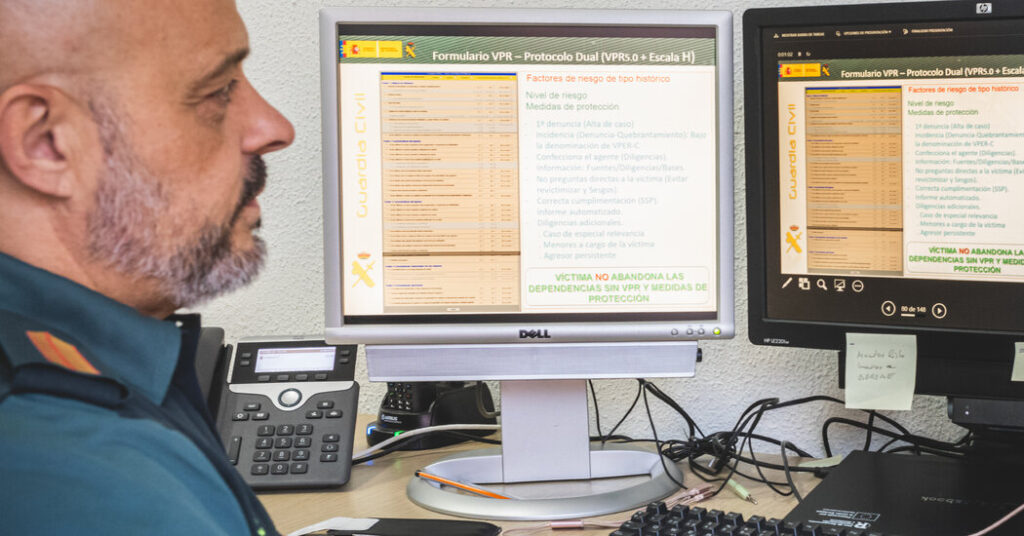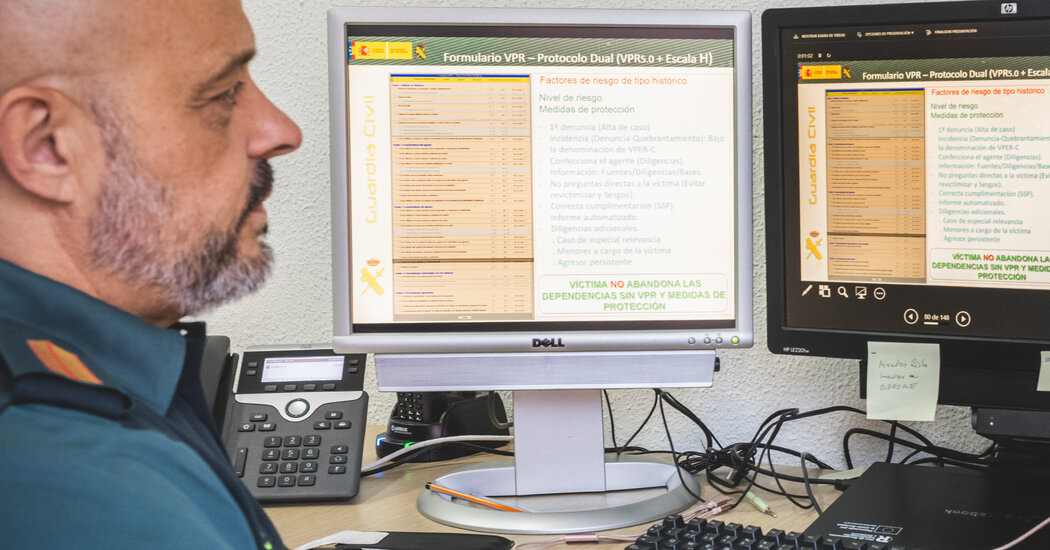Spain Overhauls Domestic Violence System After Criticism
Spain uses an algorithm to score how likely a domestic violence victim is to be abused again. A Times investigation last year identified flaws in the system.


Spain uses an algorithm to score how likely a domestic violence victim is to be abused again. A Times investigation last year identified flaws in the system.
The Spanish government this week announced a major overhaul to a program in which police rely on an algorithm to identify potential repeat victims of domestic violence, after officials faced questions about the system’s effectiveness.
The program, VioGén, requires police officers to ask a victim a series of questions. Answers are entered into a software program that produces a score — from no risk to extreme risk — intended to flag the women who are most vulnerable to repeat abuse. The score helps determine what police protection and other services a woman can receive.
A New York Times investigation last year found that the police were highly reliant on the technology, almost always accepting the decisions made by the VioGén software. Some women whom the algorithm labeled at no risk or low risk for more harm later experienced further abuse, including dozens who were murdered, The Times found.
Spanish officials said the changes announced this week were part of a long-planned update to the system, which was introduced in 2007. They said the software had helped police departments with limited resources protect vulnerable women and reduce the number of repeat attacks.
In the updated system, VioGén 2, the software will no longer be able to label women as facing no risk. Police must also enter more information about a victim, which officials said would lead to more accurate predictions.
Other changes are intended to improve collaboration among government agencies involved in cases of violence against women, including making it easier to share information. In some cases, victims will receive personalized protection plans.






